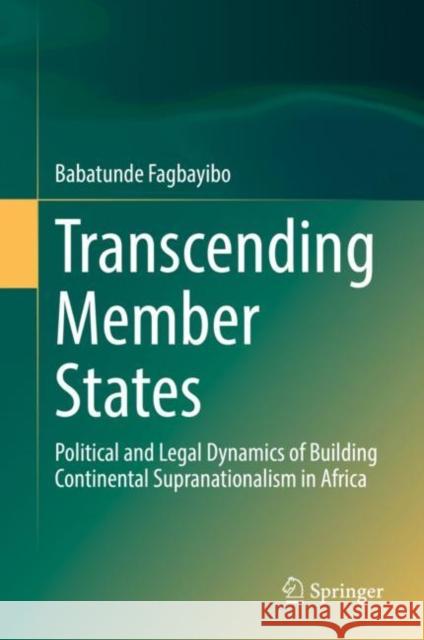Transcending Member States: Political and Legal Dynamics of Building Continental Supranationalism in Africa » książka
Transcending Member States: Political and Legal Dynamics of Building Continental Supranationalism in Africa
ISBN-13: 9783031124501 / Angielski / Twarda / 2022 / 167 str.
Transcending Member States: Political and Legal Dynamics of Building Continental Supranationalism in Africa
ISBN-13: 9783031124501 / Angielski / Twarda / 2022 / 167 str.
(netto: 367,16 VAT: 5%)
Najniższa cena z 30 dni: 382,84 zł
ok. 20 dni roboczych.
Darmowa dostawa!
This book explores innovative and context-driven political and legal policy measures designed to expand the powers of the African Union (AU) in order to meaningfully drive the continental integration process. In this regard, the book addresses issues of context, political will, and innovative and inclusive approaches as essential elements that must be considered. Africa is currently experiencing one of the most critical phases of its integrative development. Since 2015, there have been increasing efforts to develop policies and practices that grant the AU broader powers to coordinate and create binding rules regarding the regional integration process. In other words, these processes seek to endow the AU with supranational powers like those exercised by the European Union, which, despite its internal problems, remains the most successful experiment in supranationalism in the world. This has included the decision to finance the AU through a 0.2% tax on eligible imports into member states; the decision to reduce the number of AU Commission portfolios from eight to six; the adoption and entry into force of the much touted Agreement establishing the African Continental Free Trade Area; the adoption of the Protocol to the Treaty Establishing the African Economic Community Relating to Free Movement of Persons, Right to Residence and Right of Establishment; and the adoption of the AU Agenda 2063 policy framework in 2015. How these processes will change the direction of regional integration in Africa, the book argues, largely depends on the existence of quality-driven institutions.











